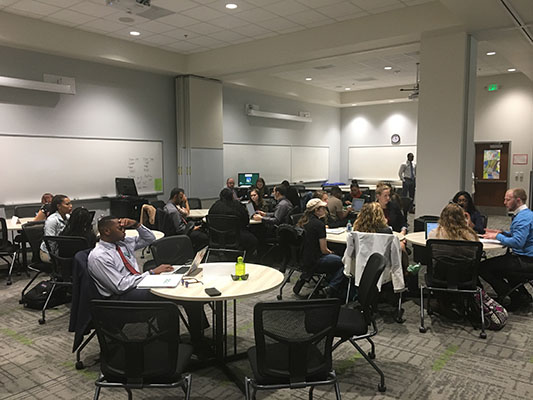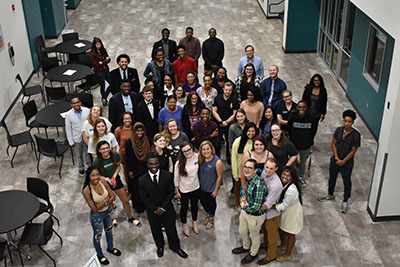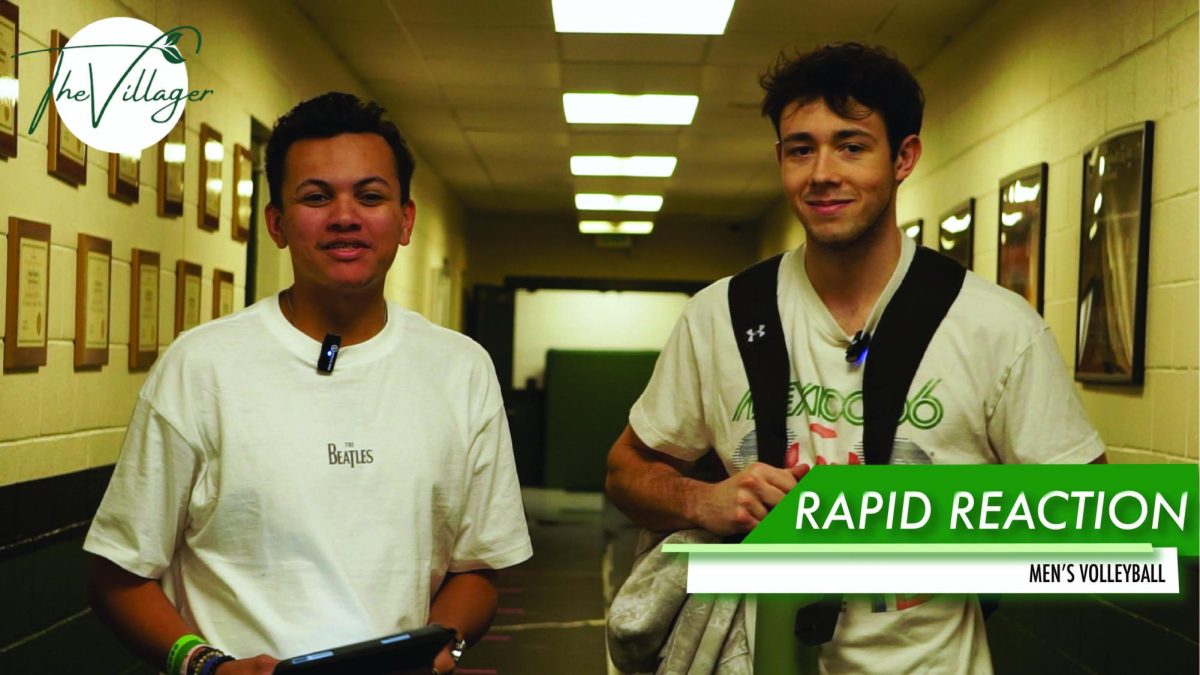This year, the SGA Senate has been restructured to bring in new policies that will change the student life experience on Stevenson’s campus. After four meetings this year, the senate has begun to make great strides in creating more transparency and cooperation with administration.

The speaker of the senate, senior Bryson Barksdale, explained that the primary objective of the Senate is to “bring in all student leaders who are interested in making a change at Stevenson and have an opportunity to have a voice at the table. The student’s voices should create change, create new ideas, and create collaborations with different groups on campus to figure out what the students want overall.”
SENATE MEETINGS
In years past, the senate was comprised of about 20 members. Members included two representatives from each academic school and two commuter and residential representatives. Formal policies had to be addressed in meetings with the SGA advisor bi-weekly, a meeting with Claire Moore, vice president of student affairs, once a month, and meetings with former president Kevin J. Manning whenever possible. It was a serious responsibility for only two students to not only be the voice of the entire student body during these discussions, but there were more voices that needed to be heard.
The new senate structure allows for more organization. More than 60 members participate. The members include one representative from each club and from 13 committees whose jobs are to build a better community at Stevenson.
Junior Lauren Novsak, the director of public relations and alumni outreach, believes that now there is more student representation in the meeting room.
“One of the things we talk about is having a random stratified sample of the campus population but on smaller level. This has been the closest in my time that we have had an accurate representation of what the student body looks like,” she said.
The SGA Senate may have improved the look when it comes to representation, but the group is still seeking more voices from the student body to be brought to the attention of the Senate. As of now, resources and outlets for student issues are not being fully utilized. Student concerns have the most effect if they are sent through the SGA website rather than through word of mouth.

The new legislative system has enabled these concerns to be turned into a written bill that can be brought directly to administration. New bills are presented in the senate meetings and members vote on them. Bills that win the vote are sent to the executive board and are further discussed to find the best way to bring them to administrative attention. Without this extra step in the process, the senate would have a harder time getting bills implemented. A bill can be passed by the students, but ultimately it comes down to the administration’s decision about the request’s feasibility.
NEW BILLS PASSED
Recently, the senate passed two bills, the Student Activities Fee Bill and the Fire Drills Bill. The bill pertaining to fire drills requests that drills occur after 10 a.m. As of now, drills are being conducted during quiet hours that have been established through the Residence Life and Housing Guidelines and Policies enforced by the university. Students want to create a mutual understanding and a level of respect between the university and the residents.
For both Barksdale and Novsak, the best way for students to be most aware of significant issues on campus is to have a seat at the table. Barksdale said that students need to be at the forefront of these discussions.
“Students need to be on the board of trustees. Students need to be on the budgeting committees. Students need to be in the president’s office when they are creating business plans for the next four years. Students need to be at the table because we don’t hear about it unless it is brought up in conversation. A student needs to be able to relay these conversations back to the students and SGA when they happen,” he said.
Novsak also feels a similar concern, noting that “at the end of the day, we cannot be a university without the students and so having our opinions being heard and valued and being at the forefront of those discussions is important in moving forward as a university. Not saying the university doesn’t put the students first, but there is definitely room for improvement.”
For more information, contact the SGA or attend a senate meeting.


























































